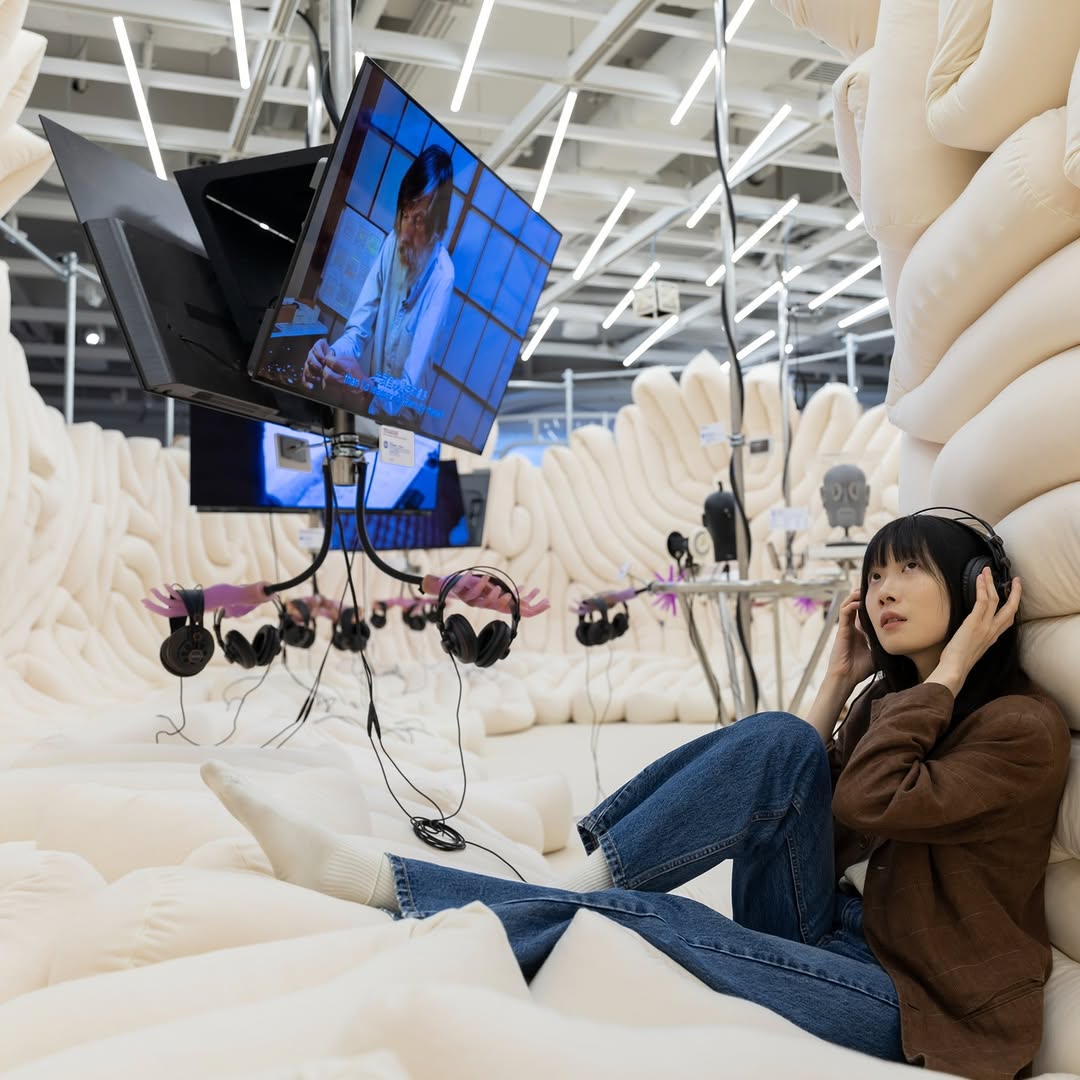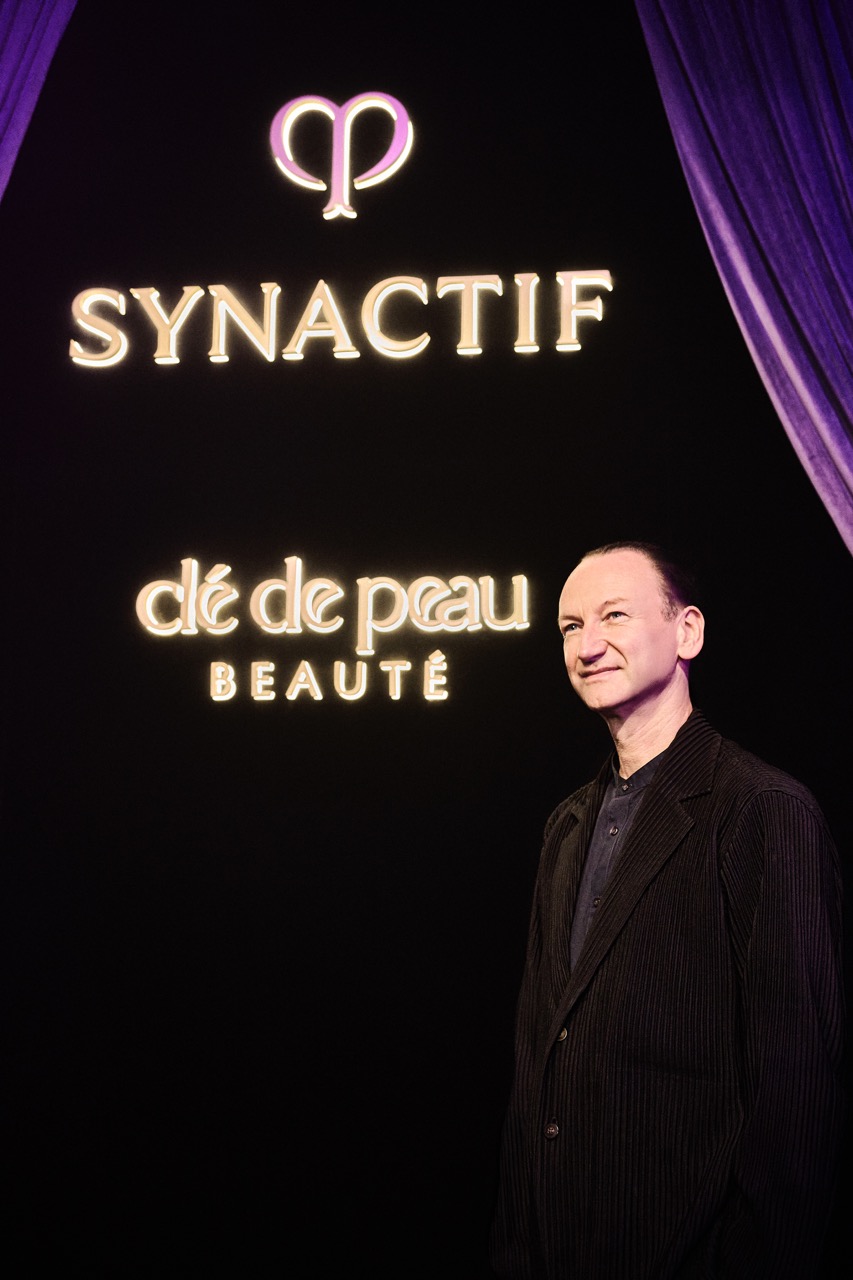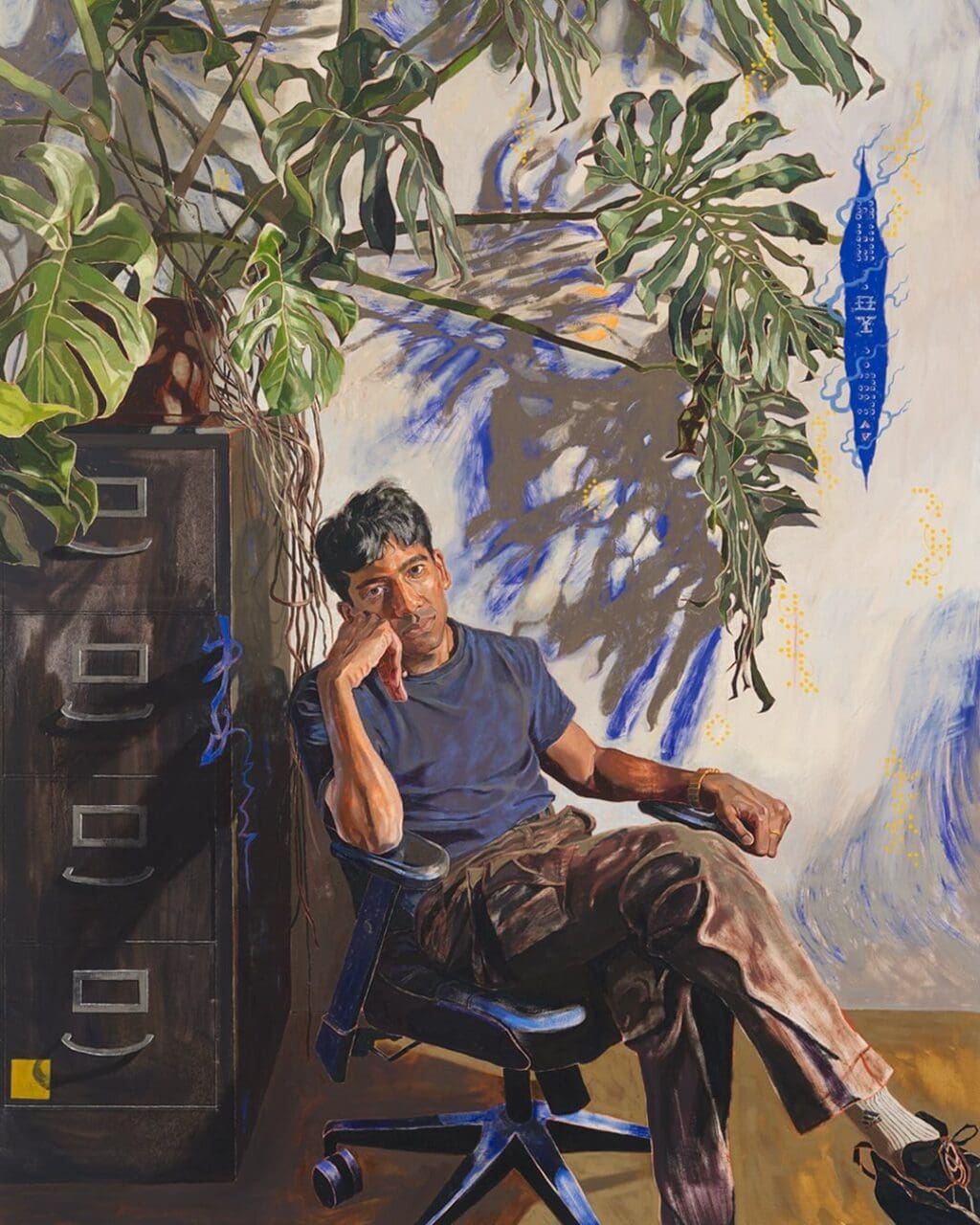From her roots in Cheung Chau to the pinnacles of the Olympic podium, Lee Lai Shan has forged a legendary name for herself, taking on the sporting world in a series of uphill battles. Known affectionately to locals as ‘San San’, she’s become an icon of the Hong Kong spirit and today remains as elegant as ever. In a heartfelt conversation with Vogue Hong Kong, she describes how sport has changed her life, from the harsh realities of training before she became famous to how sport has tightened her familial bonds. Without sport, there wouldn’t be the Lee Lai Shan there is today.
“I grew up in Cheung Chau. I’d run through the hills and could never sit still,” San San begins. She is the eighth of ten siblings, who all had their own fortes, from academic prowess to culinary skills and managing the home. Because of this, Lee would not compare herself to them, knowing that her own interests lay in sport. “You’d definitely see me on the podium at school swimming and athletics competitions!” Later on, she took up windsurfing under the guidance of her uncle Lai Kan, and her talents became evident. In 1989, she joined the Hong Kong windsurfing team, and her life was never the same. “I found that even a little girl who just enjoyed running through the hills could have a successful side to her.”
Striving For Greatness
The most significant achievement of Lee’s sporting career was undoubtedly her historic gold medal-winning victory at the 1996 Atlanta Olympics. “Many will say that my happiest and most unforgettable memory should be the moment I won the gold medal in 1996,” she says. “But looking back on it now, I actually really miss and am very grateful for the training I underwent in Europe in 1990.”
It was the first time Lee had taken part in training in Europe, and thirty years later, she still vividly remembers every moment from the incredibly strenuous experience. Her team faced a shortage of resources; they had to provide for themselves, with money coming out of their own pockets for every matter, big or small. When a sail got too old and broke down, the team found themselves with no money to buy a new one, so they built and repaired sails themselves. In order to save on accommodation costs, they would camp out. “Imagine how hard the ground was, and gophers digging around every night.” These were the difficult conditions she had to endure after an equally hard day of training, but the team never gave up—deep down they knew it was the only way forward. “[We thought] ‘if we don’t do this training, we’ll have no chance of achieving good results’.”
“In three months, I went from being a little girl to being all grown up,” says Lee. “Such rigorous training meant that I developed a lot of strength and perseverance.” The same year saw her performance improve exponentially at the Asian Games in Beijing. Although she faced the obstacles of a back injury and strong winds, she didn’t consider giving up like she would have done in the past, ultimately winning herself a hard-earned silver medal. “After this, there was more attention paid to funding windsurfing, so those three months affected both my life and the development of the sport.”
After Lee Lai Shan’s breakthrough with Olympic gold, Hong Kong society began to follow and support local sporting ventures to greater extents. While Lee is delighted to see that the new generation of athletes are now able to make use of more resources, she also stresses that learning how to motivate themselves is of utmost importance “With so many more resources [available], I’m afraid that what I have at my core will change, so I need to keep tweaking myself.”
During the last Olympic games in Tokyo, Cheung Ka Long won Hong Kong’s second gold medal. Witnessing this historic moment as a TV presenter, Lee was not only touched, but positive that Hong Kong athletes would go on to achieve even more. With the Paris Olympics about to begin, locals have high hopes for Hong Kong’s athletes, but this may also be a source of pressure for them. As someone who’s been there before, Lee encourages the athletes to enjoy the competition and not let pressure from the outside world add to their own burdens; instead, they should use their results to measure their success. “Think about whether you were able to show off what you have learned. When you only use your results to measure your value, you add to the pressure you put on yourself, making yourself unable to think clearly.”
Bonding Moments
Lee retired after the Athens 2004 Olympics to focus on her family. She married famous windsurfing teammate Wong Tak Sum, and they had two daughters, the elder daughter being quiet and the younger being very active. Lee encourages both girls to keep fit through exercise, but even more importantly, to find their hobbies. So, she lets go and allows them to do what they love. Of her younger daughter, she explains, “If there is something she wants to do, no matter how difficult it is, she will do it, and she will enjoy it.”
Lee shares that when her youngest was only eight years old, she decided to participate in a triathlon competition and had also changed schools to join the athletics team. After she began studying in the UK, Lee’s daughter fell in love with lacrosse and will be representing Hong Kong in the 2024 World Lacrosse Women’s U20 Championship this summer. “Throughout this entire process, she has tried out whatever she likes to do. I have not given her any help – a mother’s role is to support and encourage. I’m actually unfamiliar with lacrosse, but because of my daughter, I’ve learned how to watch lacrosse matches and now have yet another topic to talk about with her.”
Sport has also brought many joyful memories to Lee’s family. “As a family, our favourite sporting activity is taking two canoes to a small island to camp out. No matter how windy or rainy it gets, we’d go and stay on the island for three days and two nights, bringing our own food and supplies. Throughout the whole trip everyone is very happy; it’s very quiet, and no one goes on their phones so the family gets closer,” reminisces San San with a smile. As her daughter gradually grows up and goes to study abroad, and Wong Tak Sum’s job as a government sporting official gets even busier, Lee has begun to experiment with cooking. She hopes that when her husband gets home from work, and her daughter returns to Hong Kong for the holidays, they can have a delicious home-cooked meal. “The happiest thing for me is when they eat all the food I’ve cooked!”
San San notes that many things she does in her life are for other people, but sport has always been for herself. “For example, when I cook, it’s in hopes that my children and husband will be happy. When I volunteer, I hope I can be of help to other people. But you need to think, ‘What about myself?’ You need to consider yourself physically and mentally; you also need to relax and strengthen your body. Therefore, I hope [everyone] can try their best to do some sport, keep healthy and reduce stress levels.” Lee says that she’s already done many water-based sports, and has now fallen in love with badminton and hiking. “If you don’t have anything that you like doing for yourself, and you only do things for others, you’ll be very bored!”
Translated by Wing Hei Woo
Photography: Chau Yiu Yan
Makeup Artist: Chi Chi Li
Hair Stylist: Jaden Yeung
Fashion Assistant: Naoki Li
Location courtesy of Royal Hong Kong Yacht Club
Editor
Bonnie Yau











